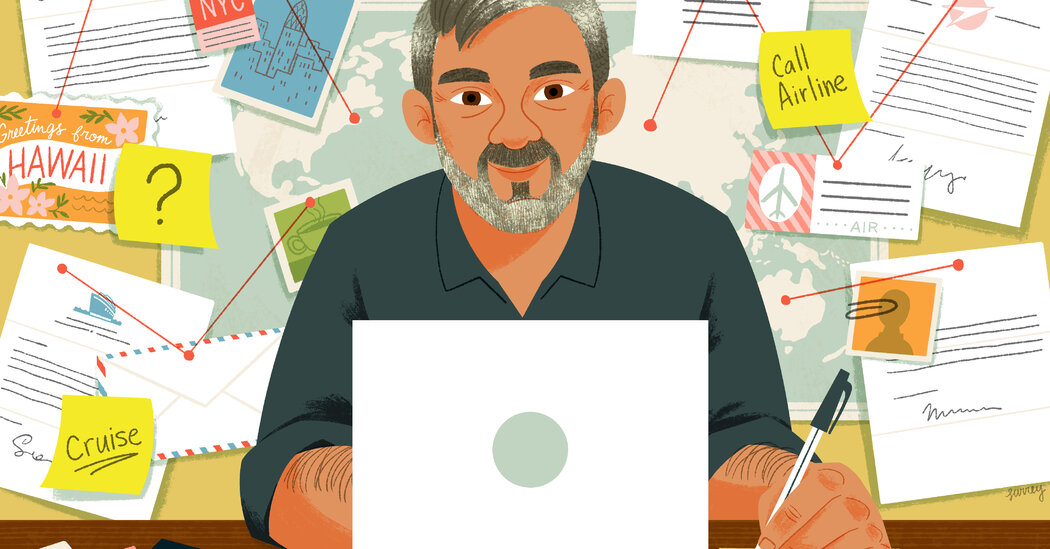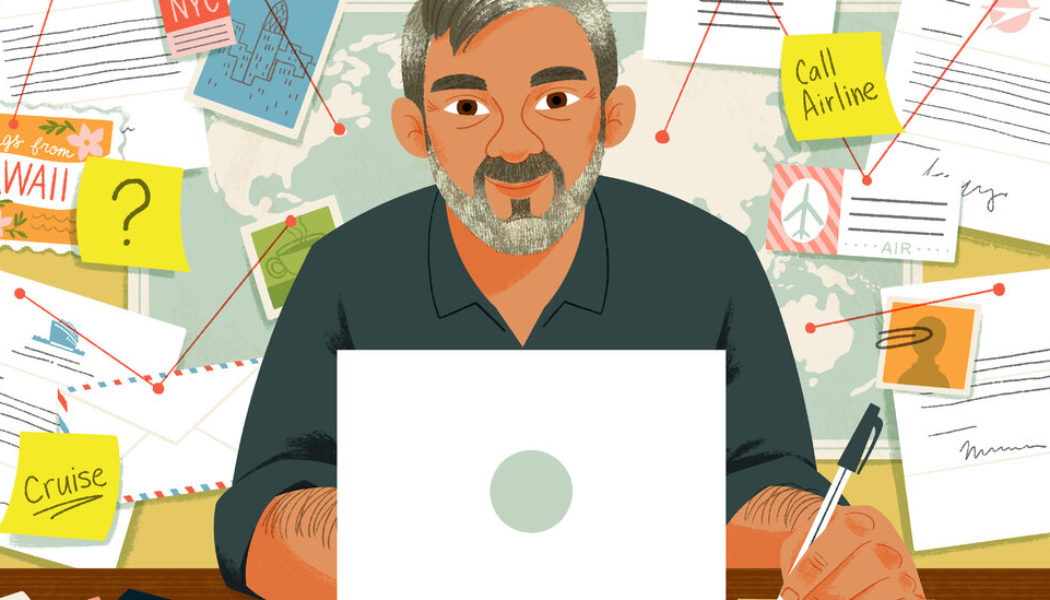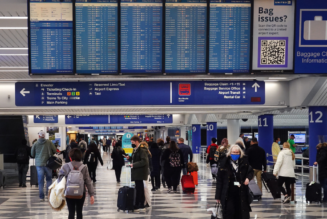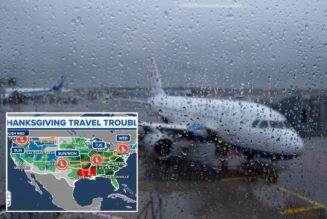
Seth Kugel, who writes the Tripped Up column for The New York Times, offers readers travel advice and problem solving — including, once, a $17,000 refund.
Times Insider explains who we are and what we do and delivers behind-the-scenes insights into how our journalism comes together.
Seth Kugel’s ideal afternoon — if travel to an exotic location is off the table — is a sunlit sojourn in his home office in Jackson Heights, Queens, demystifying someone else’s travel nightmare.
Mr. Kugel, a longtime freelance travel writer who has written the Tripped Up travel advice column for The New York Times since May 2022 (he previously wrote the Frugal Traveler column), specializes in lending a ready ear to people’s head-scratching travel problems and then going to bat for them against airlines, travel agencies and car rental companies. He says he can receive up to 250 queries a week on topics such as why rental car companies seldom have the model of car that people reserve available and whether travelers have any recourse when airlines change their flight itineraries.
He reads almost every question he gets, and even if he does not select a question for the column, he tries to respond with a few sentences of advice. “If I help someone get their money back, great,” he said. “But what I’m really trying to do is expose the inner workings of the travel industry and travel companies so people reading can avoid such problems in the future.”
In an interview, Mr. Kugel shared the most complicated case he’s tackled, why he enjoys poring over policies and paperwork, and whether writing the column has made him feel better about his own travel mistakes. These are edited excerpts.
Helping people solve their travel disasters is, objectively, a lot less fun than traveling. Do you enjoy it?
I love to ask questions, figure out how things work, and then explain that to other people. As a traveler, and even as a travel writer writing about my own trips, I just wanted it to all work in the background. And now I get to learn how complex it is.
What are the most common complaints you encounter?
The most common is why people can’t get refunded for trips they canceled during the pandemic. Lots of companies are still delayed in making good on promises to refund canceled trips. The second thing is problems with middlemen, as in, middle companies. What happens when there’s a problem and you booked the hotel through an online travel agency? How these intermediaries resolve disputes can be pretty frustrating.
After the initial email, how much additional interaction do you have with the submitter?
It’s a long back and forth. You only see a few paragraphs, but you’re missing the four phone calls, Zoom call and 16 text messages as I play intermediary between the company and the person.
What tips do you have for letter writers?
Tell the whole truth, and nothing but the truth, including things you may have done wrong along the way. Be open about what the process was like because even if you made a little error, the company probably made a bigger error.
Also, check the previous columns. The toughest is when I do one on a specific topic, and you write to me the next day to say the same thing happened. I’ll give you advice on how to resolve it, but I can’t take on two rental car company problems in a row.
What makes for an ideal issue for a column?
The company should have made a documented mistake that clearly violates their policies, or have a policy that doesn’t make sense. And the traveler should have exhausted all their options before coming to me as a last resort. I’m skeptical when someone writes to me only a week after something happened — you have to give companies a chance.
What is the most complicated case you’ve tackled?
The woman who missed her $17,000 Antarctic cruise was pretty complex. It involved reading tons of policies and having pretty robust exchanges with companies. There were six or seven entities involved, including the Chilean government. I had to put together answers from all of them and look at it and ask, Who is really at fault here? To their credit, American Airlines eventually refunded the cruise, though it was their fault.
What do you define as a successful outcome?
It’s not always the case that the consumer wins or gets all their money back. For instance, I did one where someone got speeding tickets in Paris, and the rental company wouldn’t tell them where or when the speeding tickets happened, for a reason that has to do with European Union law. I had a great talk with some folks at the rental company, as well as the subject, and the back-and-forth turned into an interesting article, even though no one got any money back.
What have you learned about the travel industry?
I’m usually on the traveler’s side, but I’m also fascinated by — and to some extent, sympathetic to — just how hard it is to run a big company that provides one-on-one services. I would never want to be the C.E.O. of United Airlines.
Has writing the column made you feel better about your own travel mistakes?
It should make everyone feel better when you read some of my answers and see just how complicated, obscure and unfair some of the processes are. I can’t even imagine feeling bad about making a mistake anymore. Everyone makes mistakes when they travel — it’s just too complicated.
Have a tricky travel problem you need advice on? Email Seth at trippedup@nytimes.com.









